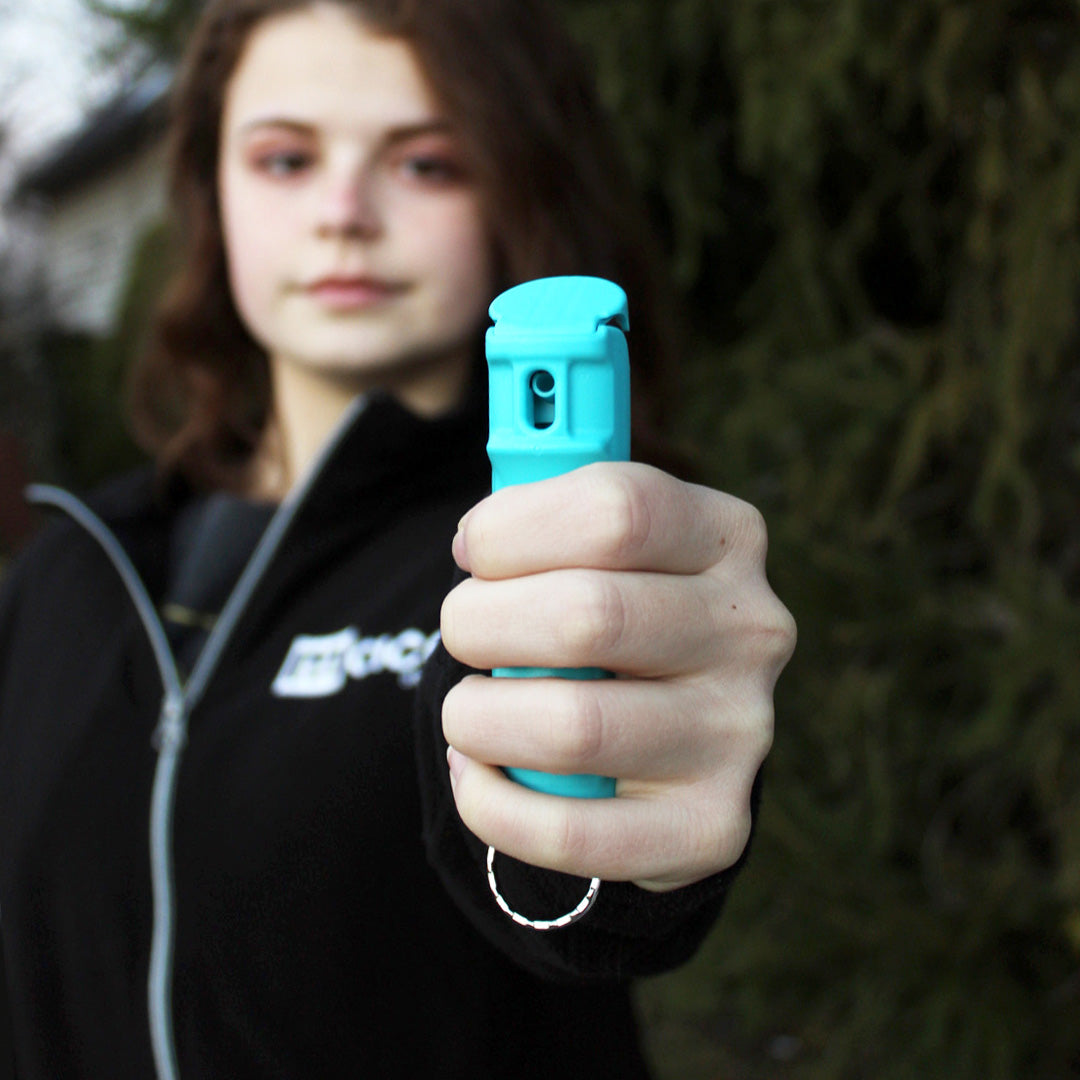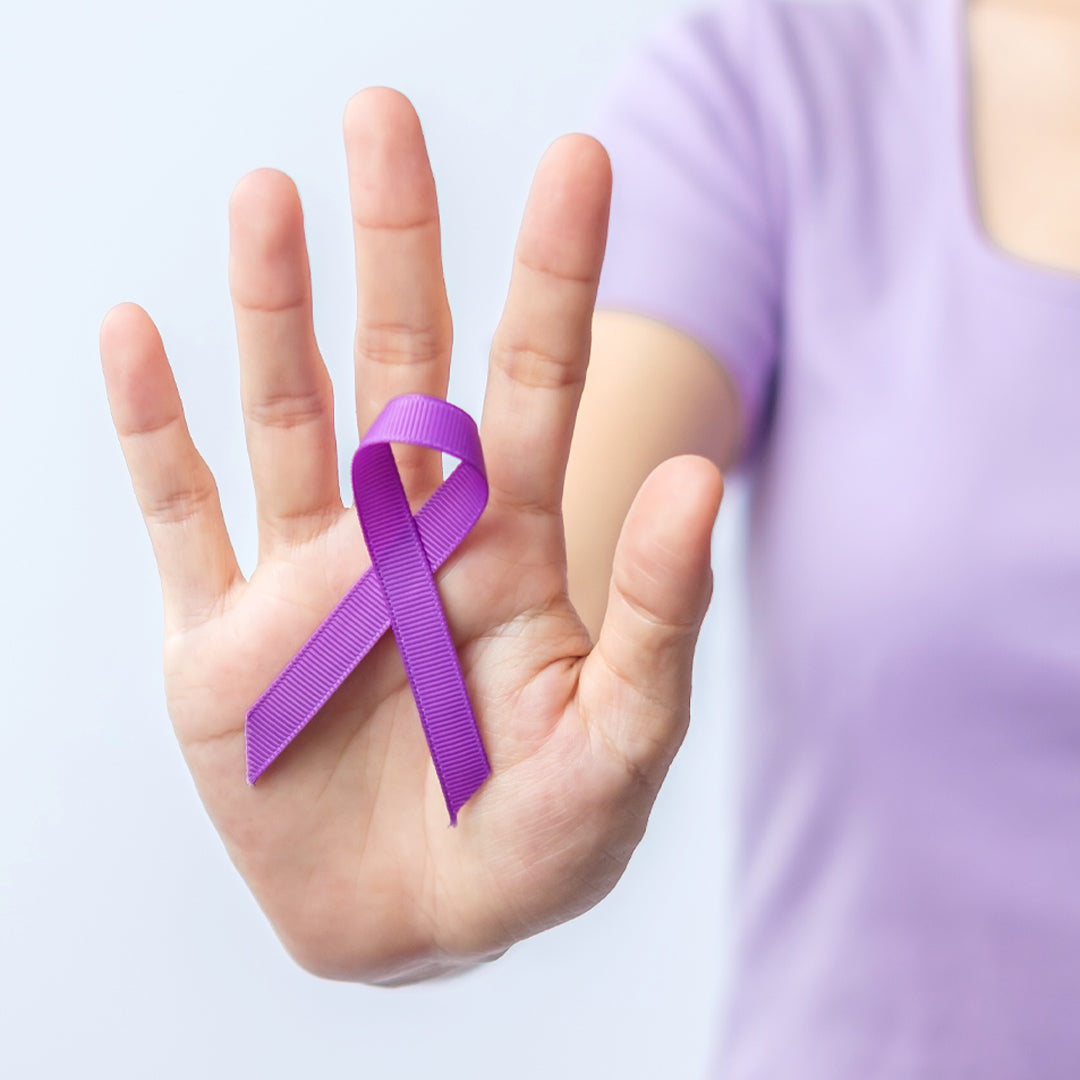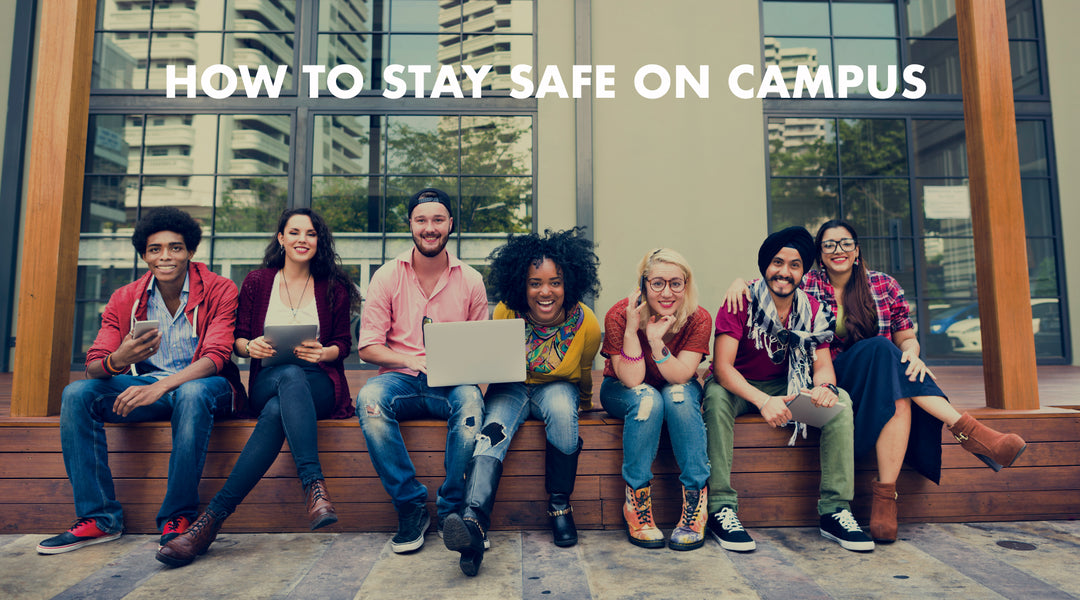Understanding Situation Awareness | Mace®
A Law Enforcement Expert Explains the Importance of Situational Awareness
We’re on a quest to help people live safer lives. We wanted to get a law enforcement professional’s take on personal safety, in particular the concept of “situational awareness.” We often hear that phrase and wonder what it means in practice.
We talked to Sarah Shandy, who not only served as a police officer for 14 years but also is the Director of the Ohio Office of Law Enforcement Recruitment. She helped us understand more about situational awareness and how to be safer in our day-to-day lives.
What is situational awareness?
Situational awareness is being aware of your surroundings in a manner that impacts your safety, which is a short but loaded statement. I mean being aware of your surroundings—at home, at work, and when you’re moving around town. It’s also being observant of how you and others behave.
Situational awareness impacts how you live, where you live, and how you act. It’s about recognizing and evaluating the risks we take with decision-making.
Why does it matter?
It may seem obvious to say, but safety is essential. But it’s often taken for granted. For instance, I’ve seen kids walking around college campuses in broad daylight with headphones in, looking down at their phones—not paying attention to what is happening around them. Why? Because they assume they’re safe, and maybe they are at that moment. But, just looking up, eliminating distractions, and watching people’s behavior matters.
It's not the big things but the small decisions you make every day that contribute to your safety. I also know that it takes less than a second for something to go wrong—and it doesn't matter if the police solve the case. It doesn't matter if the suspect gets life in jail. The victim of a crime is potentially traumatized for life. In many cases, situational awareness can prevent a crime from happening altogether.
How can you practice situational awareness?
Like so many things in life, situational awareness takes practice. First, look at your life and honestly evaluate some of your decisions. For example, if you walk to your car every day late at night in a dimly lit parking deck. Maybe re-evaluate and conclude that it impacts your safety—it’s a risk, and if you don’t have to take it, don’t do it.
What else can people do to stay safe?
The number one thing I tell people is to listen to their gut. If you have the feeling you shouldn’t be somewhere or someone doesn’t seem right—don’t ignore it. Don’t ignore it because you know someone or you don’t want to be rude. Your gut feeling is your sixth sense and it is designed to keep you alive.
Make sure you also look closely at your surroundings and identify risks. For instance, if you look at the environmental design of your home and evaluate how safe it is—that’s practicing situational awareness.
Last but not least, if you see something, say something. Don’t hesitate to call the police if something doesn’t seem right. Just call and let us take it from there. Even if it is something minor, we will take note of it. You have no idea how many crimes—burglaries and homicides—have been solved because of a small, seemingly minor detail someone called in.
Sarah Shendy is the Director of the Ohio Office of Law Enforcement Recruitment and served for 14 years as a police officer at Copley Police Department. She was recently named a 40 Under 40 Award recipient for 2022 by the International Association of Chiefs of Police (IACP).
Find Out More About Staying Safe
Explore this collection of articles focused on personal safety from the experts at Mace. We want everyone to be prepared and stay safe out there.





Leave a comment